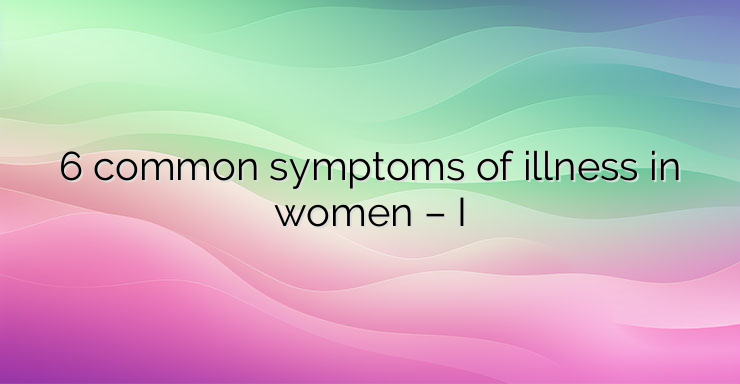Abundant white discharge or frequent fungal infections may not be a concern, especially when the woman is aware of how to control the situation quickly. However, there are symptoms that should be paid more attention to, even if they seem trivial at first glance. How to distinguish when a sign may be alarming and in which cases it is an indicator of a serious disease of the female genital organs… 1. Pain in the pelvis Pain in the lower abdomen may not be an alarming sign at all. During ovulation, it is possible to experience sharp pain or cramping in the lower abdomen from the enlargement of a follicle and its rupture as the mature egg is released. Ovulation usually occurs in the middle of the cycle. The pains are felt for about three consecutive days. The pain in the lower pelvis, outside the period of ovulation, which lasts longer and is not affected by the usual remedies taken by women in such a condition, however, requires an examination by a gynecologist. Chronic pain in the pelvis may be caused by an inflammatory process as a result of a sexually transmitted infection. Then the condition may be accompanied by a change in vaginal discharge and an increase in body temperature. The causes of pain in the pelvis can also be endometriosis and the presence of uterine fibroids, a type of benign tumor formation in the smooth muscles of the uterus. The latter are common, in one in four women. They rarely develop into malignant forms. However, their presence requires follow-up. They are easily detected by the doctor, during an ultrasound examination or just during an examination. In endometriosis, endometrial tissue sheds in organs other than the uterus. More often, the disease is detected in an advanced phase. It usually affects a woman’s reproductive abilities. Then it is possible to detect endometrial adhesions and cysts. The causes of the disease are still unknown. The pains are typical for the period – a few days immediately before and after menstruation and ovulation. The diagnosis can be made after laparoscopy. Abdominal pain that appears suddenly and is accompanied by bleeding is indicative of a cyst rupture. Some women in this case complain of nausea and vomiting. The diagnosis is made after an ultrasound examination. Severe unbearable pain that appeared suddenly, followed by heavy bleeding, is an indicator of an ectopic pregnancy. The condition is life-threatening and requires urgency. In ectopic pregnancy, the fertilized egg fails to travel to the uterus and implants there. It “gets stuck” in the fallopian tube. Later, the growth of the embryo leads to its rupture and hemorrhage. Relatively rarely, pain in the lower pelvis is due to a dangerous condition. However, if it lasts more than two weeks, even if it is tolerable and no other accompanying symptoms are distinguished, an examination by an obstetrician-gynecologist should be carried out. 2. “White discharge”… It is normal for women to have vaginal discharge. Its characteristics change according to the menstrual cycle.In some women, the release of vaginal discharge is more pronounced, in others it is not, it also depends on the individual characteristics of the body. “White discharge” is an indicator of a deteriorating health condition of the genital organs when its usual features change. Such are the appearance of an atypical smell, coloring. When the profuse abnormal discharge is accompanied by burning, itching, reddening of the tissues, and the presence of blood, it is most likely that an infection has developed. In milder cases, it is due to fungi, trichomoniasis, bacterial vaginosis… In others, it may be a more serious sexually transmitted disease. NEWS_MORE_BOX Although in very rare cases, experts point out that persistent watery vaginal discharge can be an indicator of fallopian tube cancer. 3. Vaginal dryness For lactating women, vaginal dryness is a normal phenomenon, as well as for women in menopause. Vaginal dryness is usually felt during intercourse. It is the reason for the unpleasant sensations and itching after it. It is due to low synthesis of estrogens. Complaints require care even in postmenopausal women, as in them it may be a sign of vaginal atrophy. Women with this problem are prone to easy infection, which requires taking protective measures. The use of vaginal creams, globules with estrogens prevents irritation of the mucous membrane. It is good to find out what the level of estrogens is from the doctor and if it is necessary to apply appropriate therapy according to his recommendation. In the second part: bleeding, itching, etc.bleeding, itching, etc.bleeding, itching, etc.


Leave a Reply